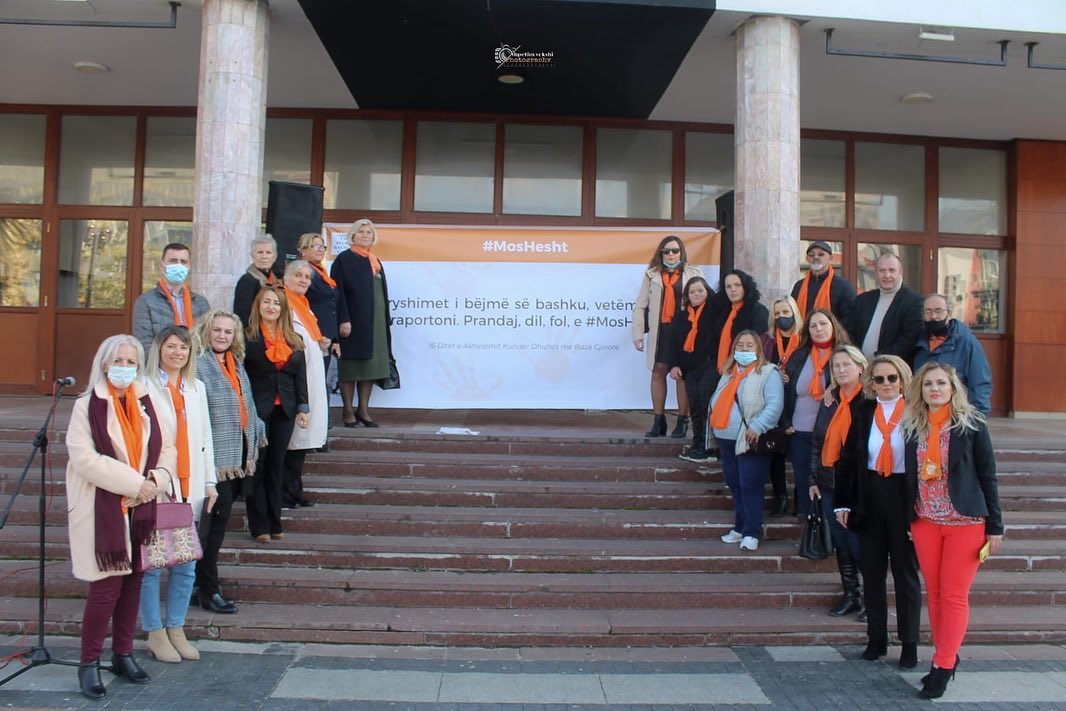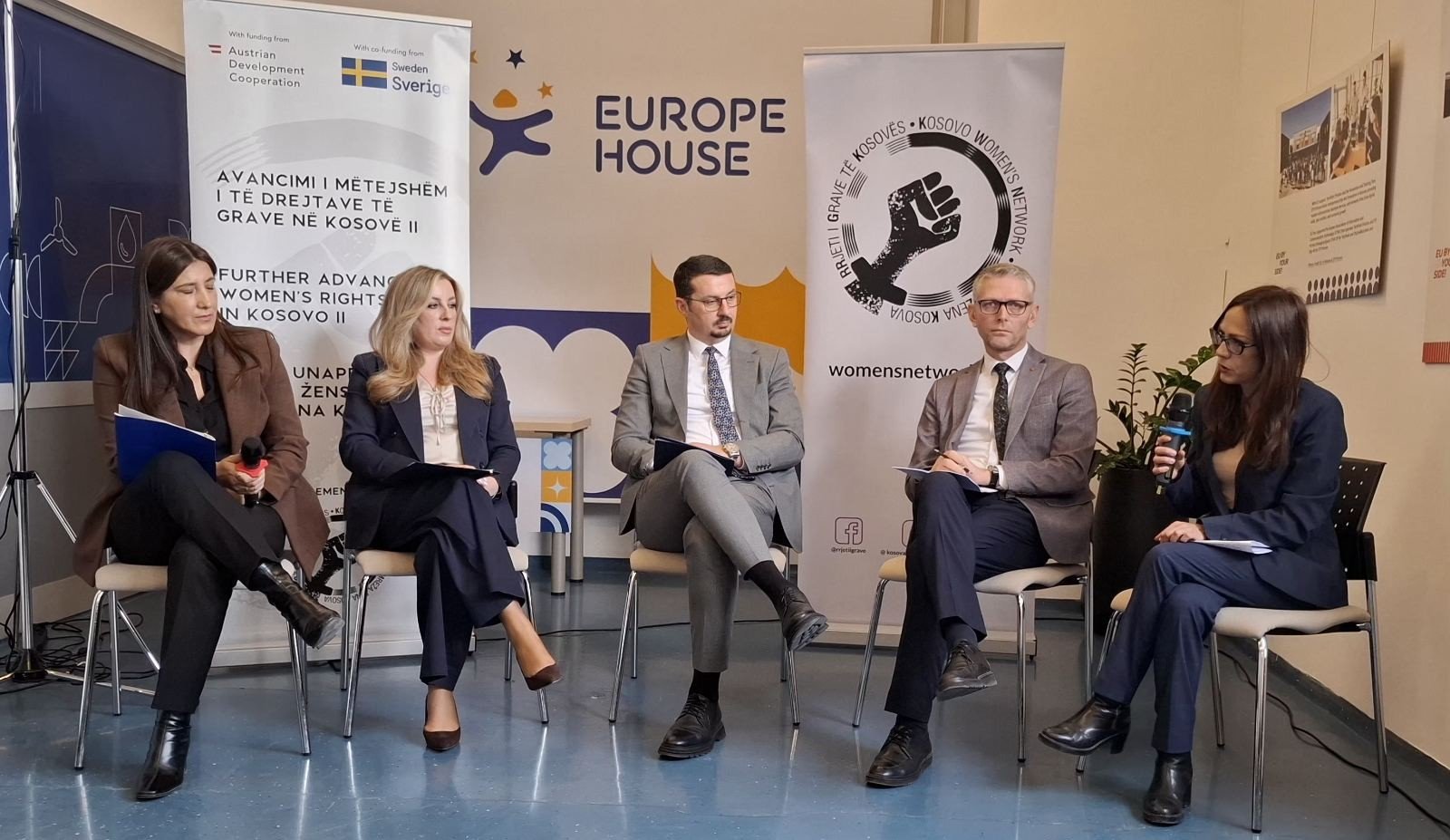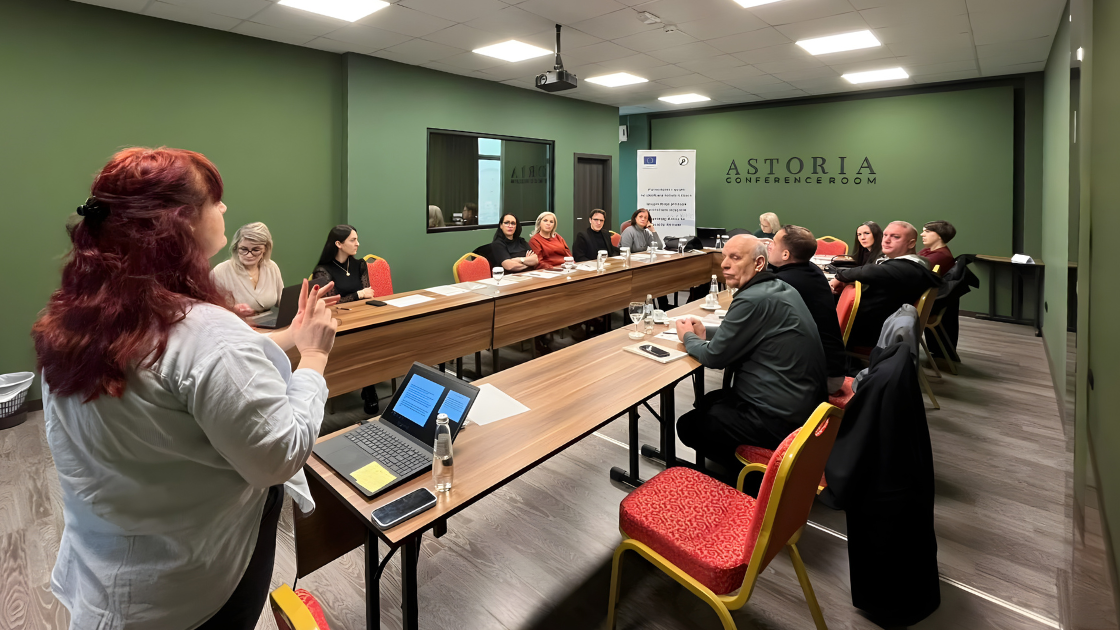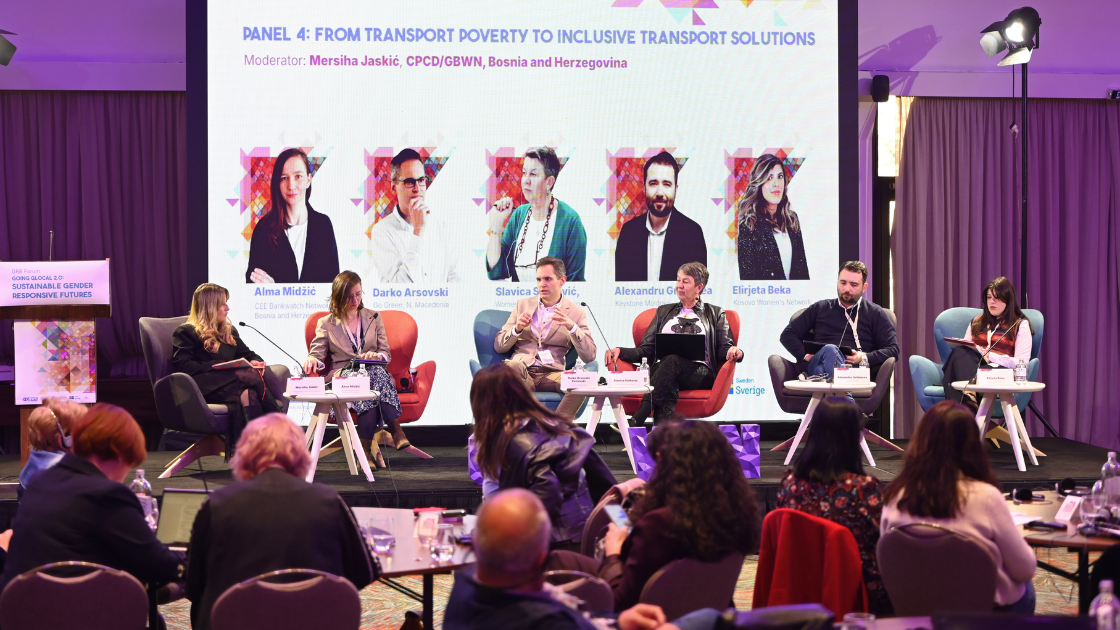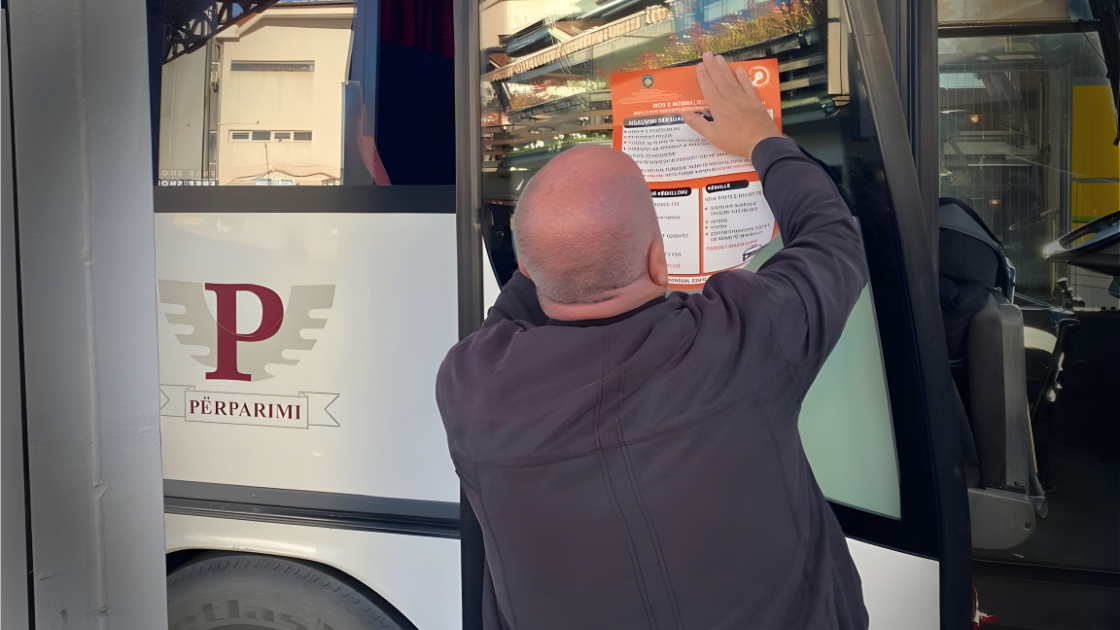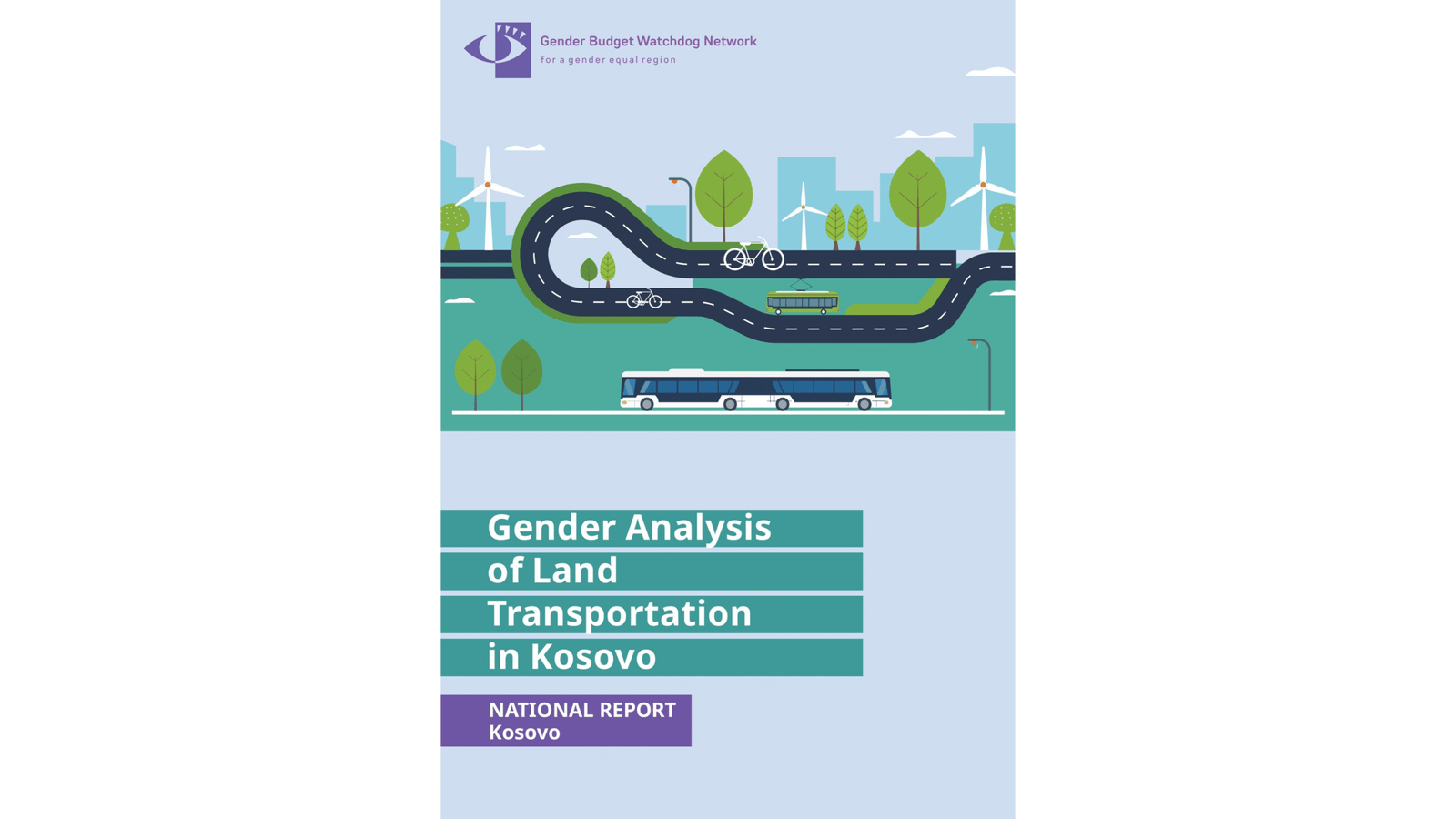The member organization of the Kosova Women’s Network the NGO “Gruaja Hyjnore”, marked November 25, the International Day for the Elimination of Violence against Women, and the beginning of 16 days of activism against gender-based violence. On this occasion, in front of the Theatre in Gjilan, a banner with the slogan #MosHesht (ENG: Don’t be silent) was unveiled, and orange scarves were distributed, symbolising a future without violence for girls and women.
Qëndresa Hajdari, Project Manager at this organization, said that reporting violence is vital, and called on justice institutions to treat these cases according to the law.
“Many women consider domestic violence to be a private matter; very few of them who have experienced violence talk about it; and even fewer of them report violence to the authorities. Through this campaign we want to address two more important issues in the battle of violence against women: victims should never be blamed, and law enforcement authorities are responsible for protecting them in accordance with the law,” she said.
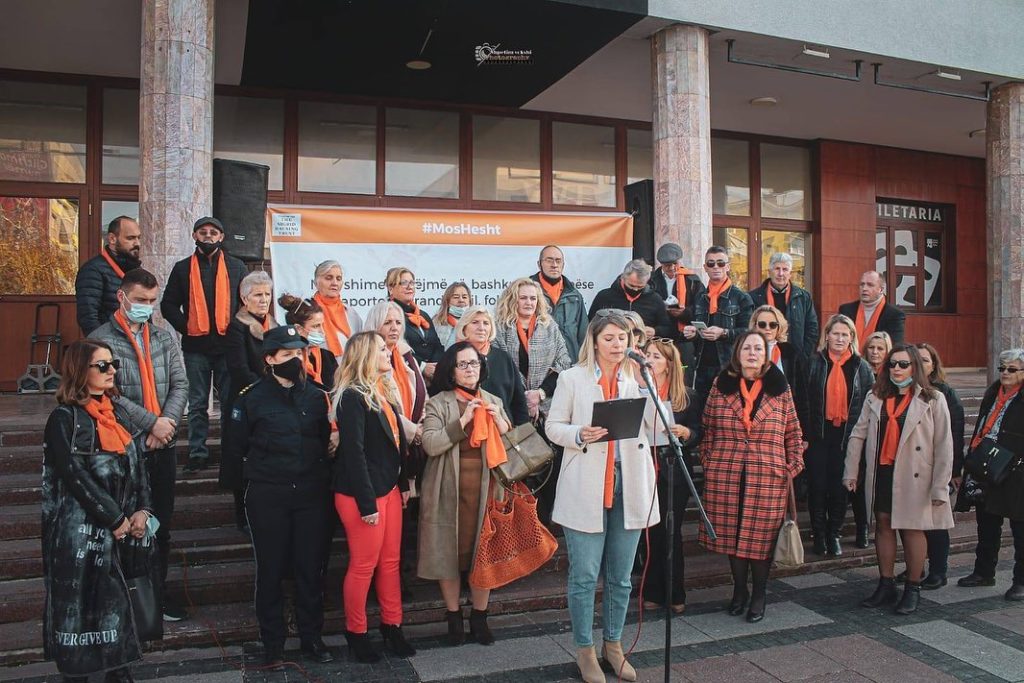
The event was also attended by Lindita Salihu, Equality Officer in Gjilan, and Coordinator of the Municipal Mechanism Against Domestic Violence. She spoke about the importance of social and institutional commitment against gender-based violence, rehabilitation and reintegration programs for women who have experienced violence, and the treatment of perpetrators of violence.
“Recently, in the Constitution of Kosova was included the Istanbul Convention, which foresees zero tolerance for perpetrators of violence. We can achieve this only if we are all engaged, we are aware of reporting and as fair protection as possible, to then go to the rehabilitation and reintegration of victims of violence. The state must also think about treating the perpetrators in several ways, because it is very worrying when the killings take place by recidivists who have been known to the institutions,” she said.
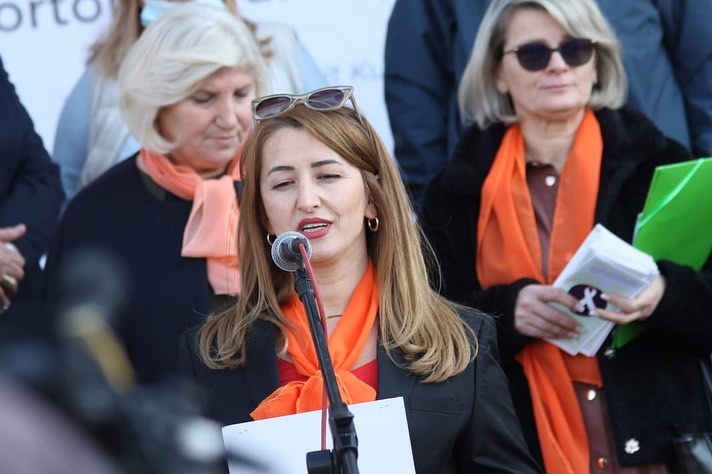
Arjeta Maka, Project Coordinator at the NGO “Gruaja Hyjnore ” called on citizens and persons experiencing violence to report it because violence is a crime and such an act is punishable with imprisonment.
“We encourage all those who hear or suspect about cases of domestic violence to report them immediately to the police. It is our responsibility to report crimes when they occur, and it is also our civic duty to protect others”.
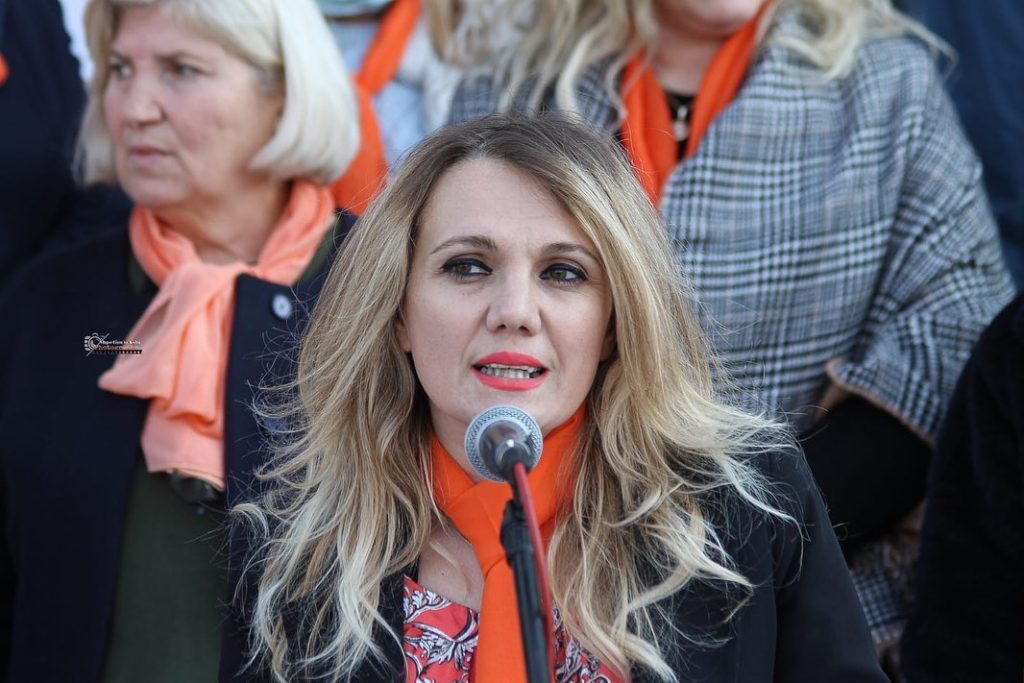
In the coming days, this organization will campaign on social media and will show the movie “Not your property”.
This activity and this initiative of the NGO “Gruaja Hyjnore ” are supported by the Sigrid Rausing Trust, through the 16th round of the Kosova Women’s Fund.
Photos: Facebook, OJQ “Gruaja Hyjnore”.

